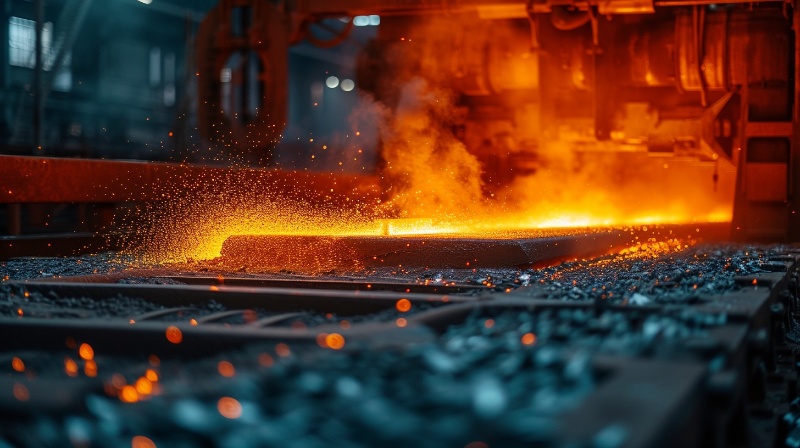The course consists of:
- 13 lectures
- 5 exercise sessions
- 2 seminars
- 3 field trips, of which each student shall participate in 2

The course focuses on explaining how sustainable metal production in a modern industry is a part of the circular economy in society. Here, the fundaments of metal production are given based on both ore raw materials and recycled materials, with examples from iron and steel production, aluminium production, copper production and metal powder production. Furthermore it is explained how basic thermodynamic and kinetic theories can be used to optimise metal production.
KTH Campus
Autumn 2026: P1 (7.5 hp)
50%
10888
Normal Daytime
English
Min: 10
Degree Programme in Materials Design and Engineering, year 3, INE, Mandatory
Degree Programme in Materials Design and Engineering, year 3, MMM, Mandatory
Degree Programme in Materials Design and Engineering, year 3, TMV, Mandatory
Degree Programme in Industrial Engineering, year 3, HPR
Degree Programme in Industrial Engineering, year 3, MCF, Mandatory
Degree Programme in Materials Design and Engineering, year 3, NTE, Mandatory
Degree Programme in Industrial Engineering, year 3, KSE
Degree Programme in Industrial Engineering, year 3, IDS
Degree Programme in Materials Design and Engineering, year 3, PRM, Mandatory
Degree Programme in Materials Design and Engineering, year 3, TEMB, Mandatory
Master's Programme, Engineering Materials Science, year 1, Mandatory
Degree Programme in Materials Design and Engineering, year 3, Mandatory
Please note: all information from the Course syllabus is available on this page in an accessible format.
Course syllabus MH2054 (Autumn 2025–)The course consists of:
The course focuses on explaining how sustainable metal production in a modern industry is a part of the circular economy in society. Here, the fundaments of metal production are given based on both ore raw materials and recycled materials, with examples from iron and steel production, aluminium production, copper production and metal powder production. Furthermore it is explained how basic thermodynamic and kinetic theories can be used to optimise metal production.
After passing the course, the student should be able to:
In total 90 higher education credits in the main field of study of Technology.
In total 90 higher education credits in the main field of study of Technology or equivalent.
Based on recommendation from KTH’s coordinator for disabilities, the examiner will decide how to adapt an examination for students with documented disability.
The examiner may apply another examination format when re-examining individual students.
If the course is discontinued, students may request to be examined during the following two academic years.
The course MH1022 Fabrication Processes of Metals and Bio Fibres (7.0 credits) has from HT23 been replaced by the course MH2054 Materials Processes (7.5 credits).
The course MH2039 Process engineering (6.0 credits) has from HT24 been replaced by the course MH2054 Materials Processes (7.5 credits).